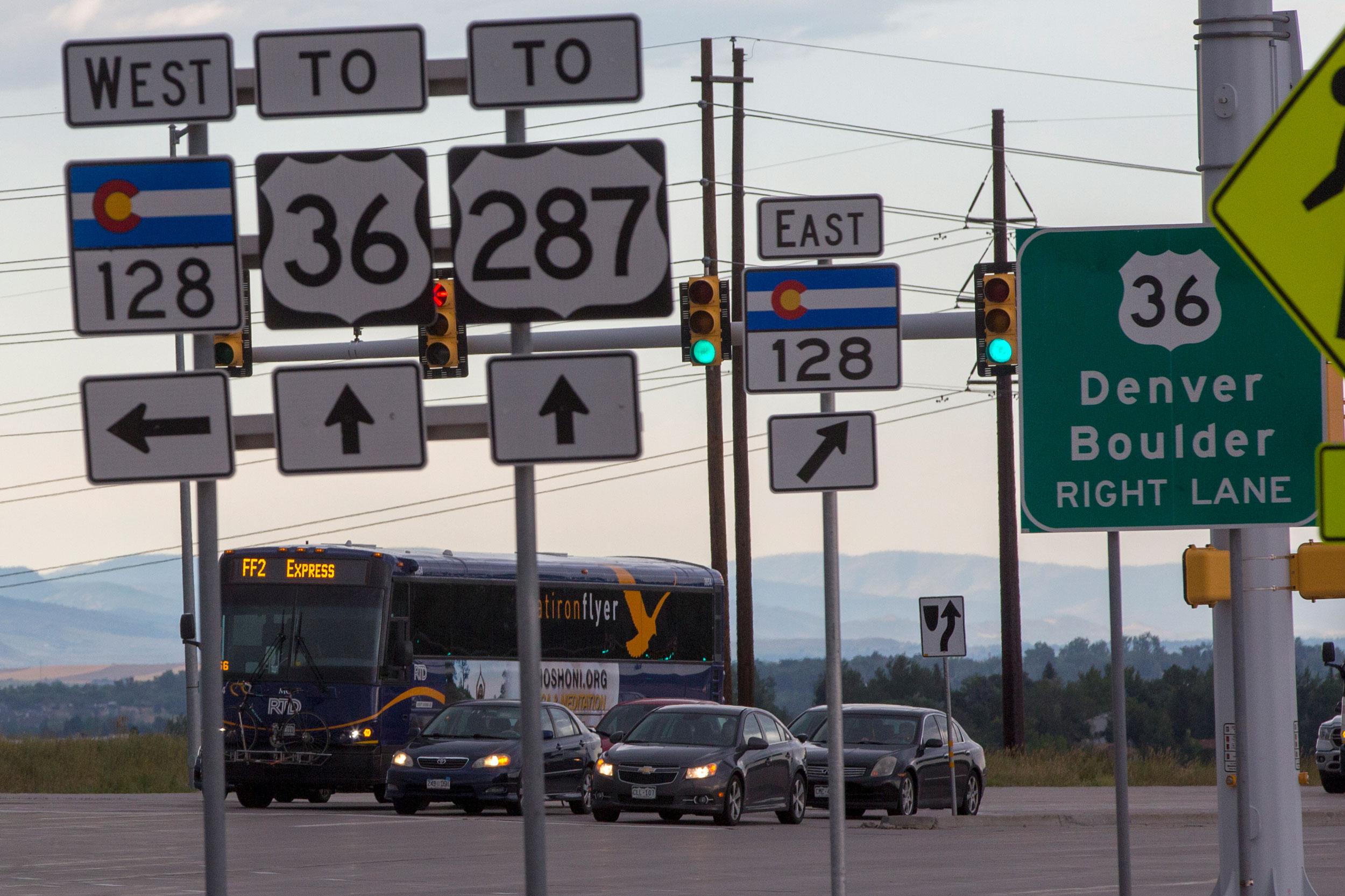
Boulder County leaders want the Regional Transportation District to provide more transit service to the area — and are seeking a binding contract to make it happen.
The Boulder County commission sent RTD leaders a letter last week expressing frustration over the lack of service to the area despite the transit agency’s receipt of more than $700 million in federal stimulus money. The county’s effort to engage with the transit agency “seems to be at an impasse,” the letter said.
“Our main concern is that RTD has gotten an enormous amount of federal funding to restore a service. And we're not seeing any results from that money here in Boulder County,” Boulder County Commissioner Claire Levy said in an interview. “We're seeing people returning to work, but not having the option of using transit.”
RTD executives said recently that they are offering about 70 percent of its pre-pandemic service levels but don’t have enough employees to restore more. They are also facing a long-term financial squeeze between a $300 million maintenance backlog, massive debt payments, and continued political pressure — from places like Boulder — to keep expanding its rail network.
Boulder officials are proposing an inter-governmental agreement between local governments, RTD and the state Department of Transportation that would guide some of the federal bailout money to Boulder County transit service.
Under the county's proposal, some of that money would go to "high priority" RTD services like the Flatiron Flyer rapid bus line between Denver and Boulder. The county is also proposing some federal money to support non-RTD transit services in smaller communities like Gunbarrel and Lafayette.
“We're not talking about becoming a bus service here,” Levy said, emphasizing that the county wants a cooperative, long-term relationship with RTD.
The agency has “too much on its plate,” she added, and pointed out that an independent committee appointed by legislative leaders and Gov. Jared Polis recently recommended that RTD collaborate more with local communities and partner with them on local service needs.
The Federal Transit Administration requires RTD to analyze significant service changes to ensure they do not unfairly impact minority and low-income populations. An analysis of its initial pandemic-era service cuts found the agency had mostly succeeded at that, and that work now serves as a “guidepost” to how RTD restores service, said spokeswoman Pauletta Tonilas.
“RTD has had several discussions with Boulder County officials on RTD’s adherence to [Federal Transit Administration] requirements related to this matter and will continue to do so moving forward,” she said in a statement.
Boulder County’s request has support from powerful constituents, including Polis.
“The federal government provided dedicated stimulus dollars specifically for the purpose of protecting the continuity of transit service for commuters and businesses in the Boulder area,” Elizabeth Kosar, a spokeswoman for the governor, wrote in an email. “Boulder County is right to demand accountability for those dollars being used as they were intended for their area.”
Colorado Department of Transportation executive director Shoshana Lew, who was appointed by Polis, said in a statement, “it’s especially critical” that small urbanized areas like Boulder quickly see the benefits of the federal money.
"Moreover, CDOT is especially concerned that the Flatiron Flyer, one of the most successful bus routes operating on the state highway system, continue to offer the close and frequent connectivity needed — and heavily negotiated years ago — to provide travelers with a competitive alternative to putting more polluting cars on US 36,” Lew said in a statement.
But the state legislature and governor have also declined to give RTD any dedicated new revenue. RTD is an independent agency mostly funded through sales taxes and, to a lesser extent, fare revenue.
Other local governments have also complained about RTD’s service levels. Officials in Parker threatened to pursue a complicated exit from RTD last year before being assured service would return.
Editor's note: An earlier version of this report misstated why RTD is required to analyze whether significant service changes unfairly impact low-income populations. That is due to the Federal Transit Administration’s guidance on how transit agencies need to comply with the Civil Rights Act, not the act itself.









